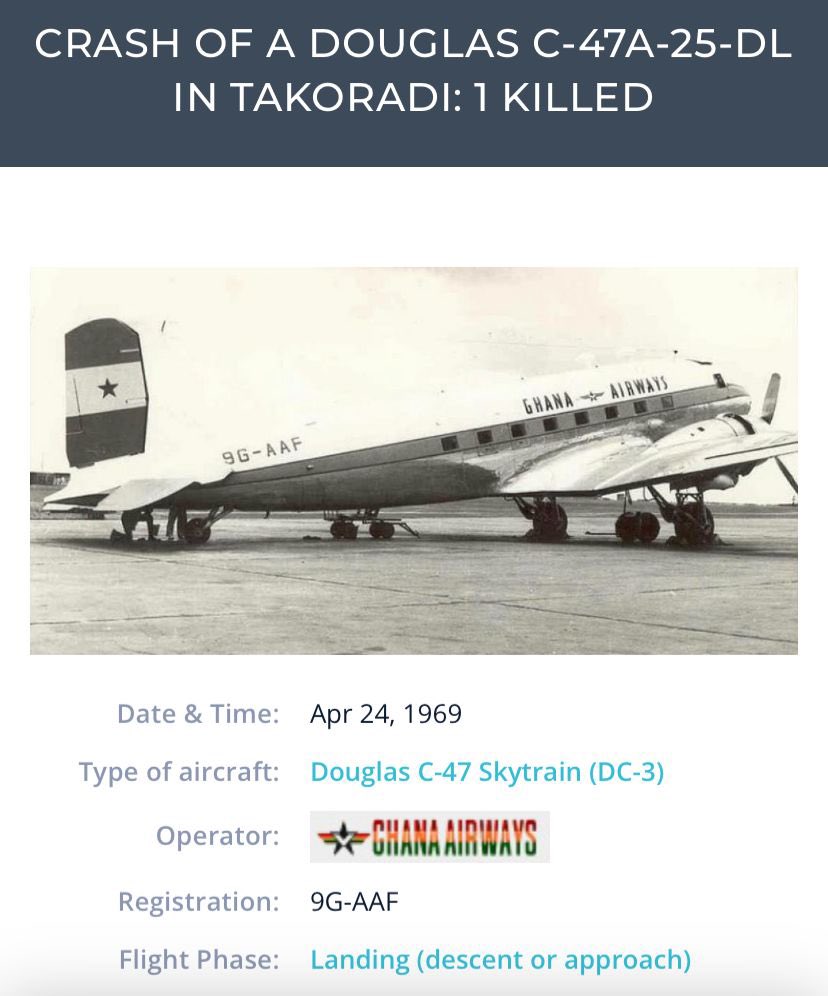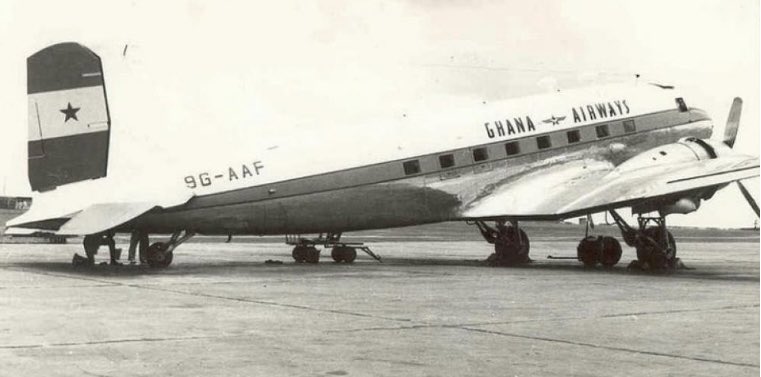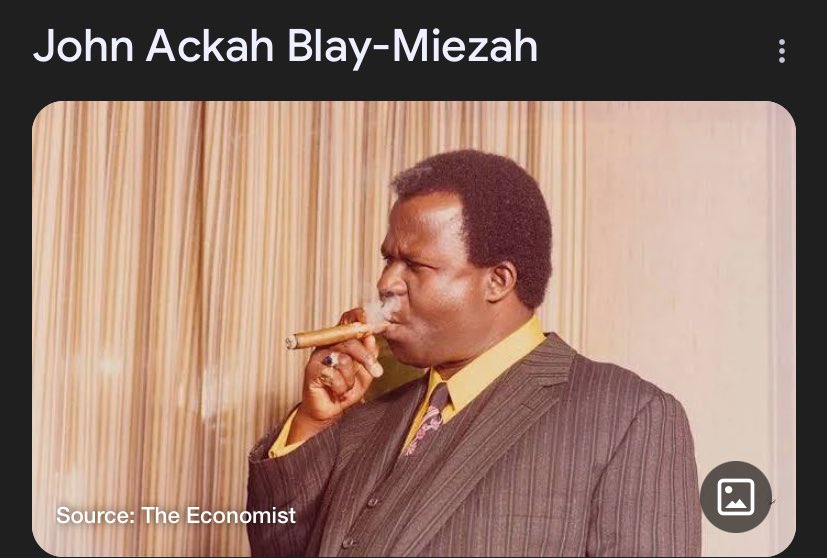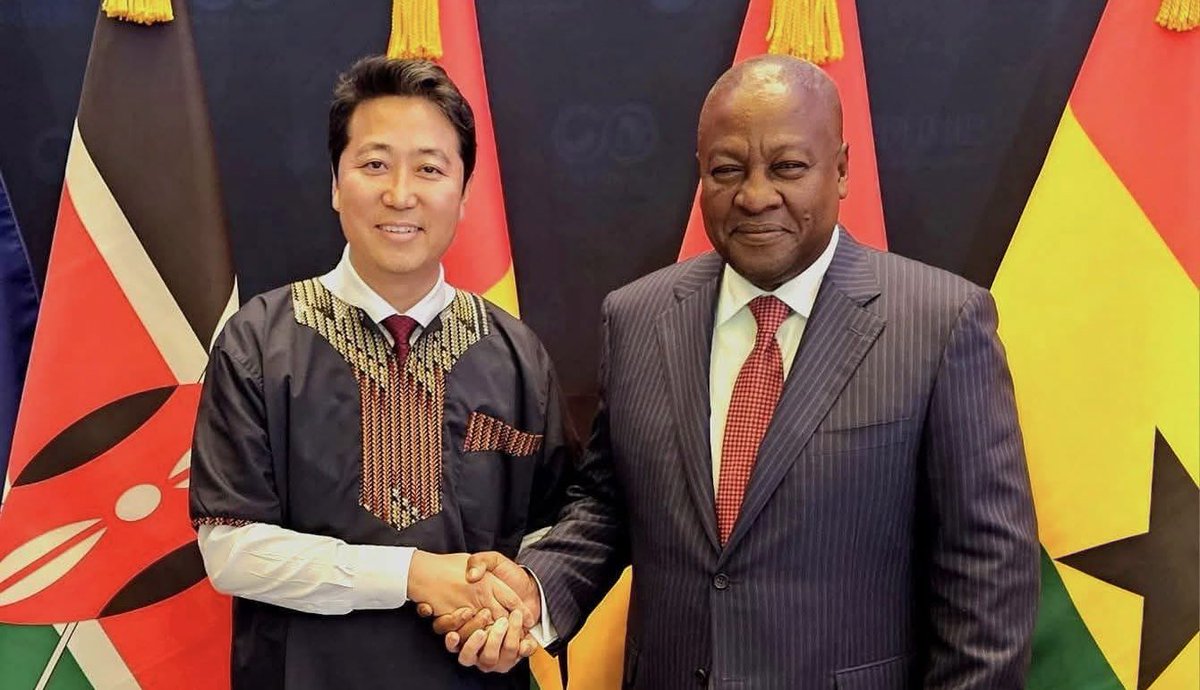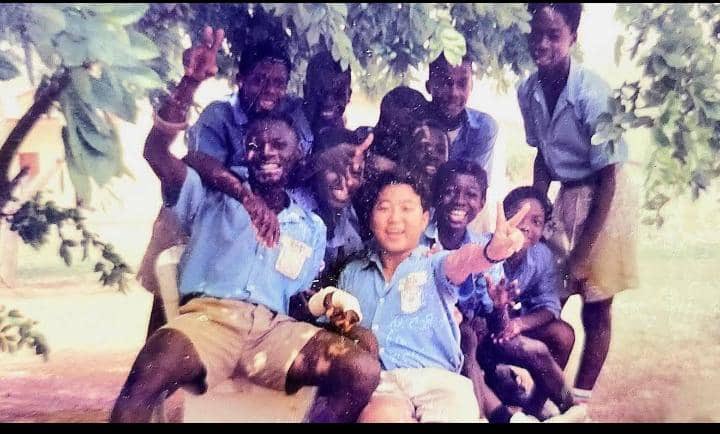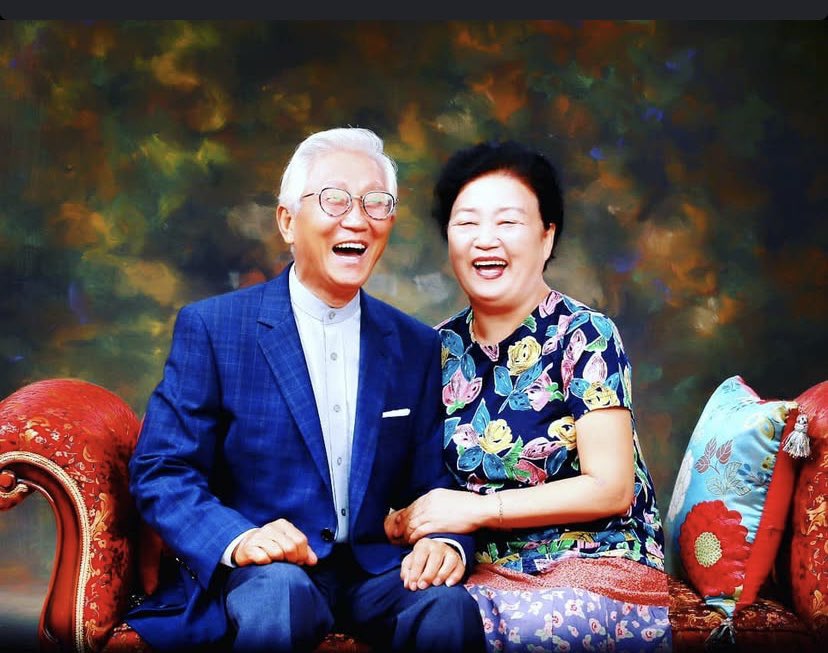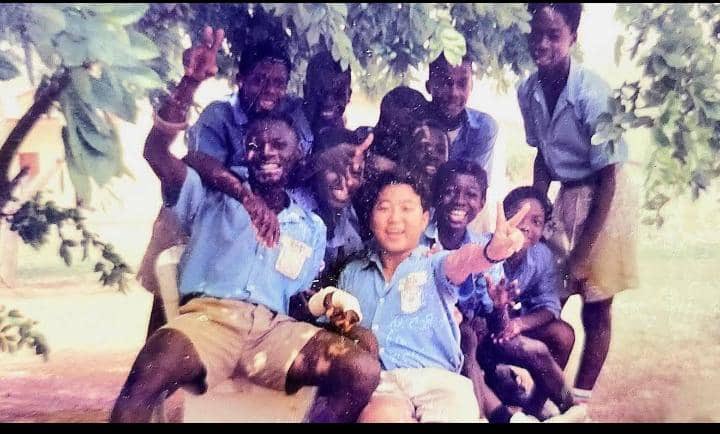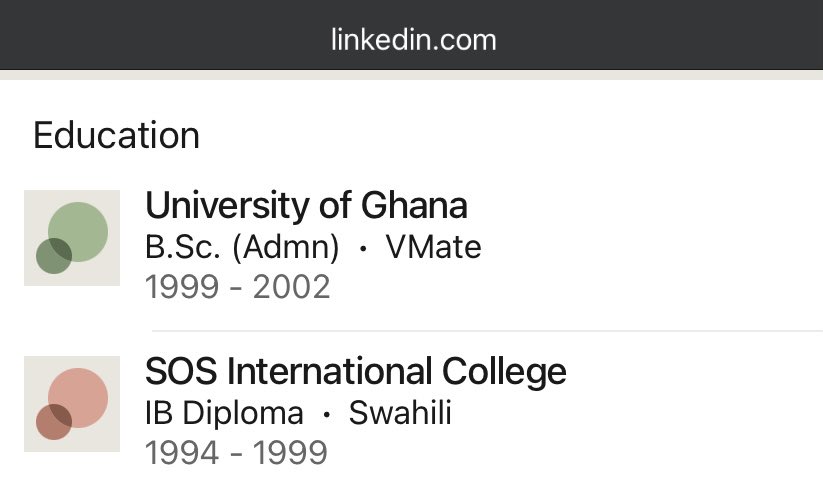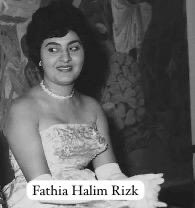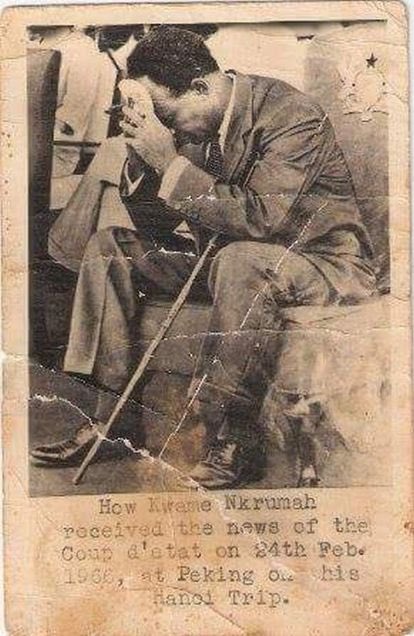Osagyefo Dr. Kwame Nkrumah wrestled with 23-year-old Constable Seth Nicholas Ametewee in the kitchen of the Flagstaff House (now Jubilee House), foiling an assassination attempt. The same incident tragically led to the déath of Supt. Salifu Dagarti.
- Here’s an insightful thread on the 1964 Flagstaff House kitchen brawl: President Nkrumah vs. Constable Ametewee, and the unfortunate déath of Supt. Salifu Dagarti 🧵
- Here’s an insightful thread on the 1964 Flagstaff House kitchen brawl: President Nkrumah vs. Constable Ametewee, and the unfortunate déath of Supt. Salifu Dagarti 🧵

On January 2, 1964, around 1:15 pm, a shocking incident unfolded in the courtyard of Flagstaff House, the seat of Ghana’s government. As President Nkrumah, accompanied by two security guards and his Aide-De-Camp (ADC), Superintendent Salifu Dagarti, prepared to head to Christiansborg Castle (Osu) for lunch, 23-year-old Police Constable Seth Nicholas Ametewee, who was on guard duty, fired shots from a distance of 50 yards at the President as he approached his car.
The brazen attack was made even more astonishing by the fact that it was carried out by a police officer tasked with protecting the President. This shocking act eerily echoes Shakespeare’s timeless observation: “There is no art to find the mind’s construction in the face.” Constable Seth Ametewee’s plan to assassinate President Nkrumah appears to have been premeditated, given that the attack occurred mere days after he was posted to Flagstaff House (now Jubilee House).
The President’s driver mysteriously vanished in the chaos, while the President’s Political Party (CPP)-appointed Presidential Security Guard took cover behind the President’s car. President Nkrumah and his ADC, Superintendent Salifu Dagarti, also took cover.
The President’s driver mysteriously vanished in the chaos, while the President’s Political Party (CPP)-appointed Presidential Security Guard took cover behind the President’s car. President Nkrumah and his ADC, Superintendent Salifu Dagarti, also took cover.
As President Nkrumah stood up to see what was going on, Seth Ametewee opened fire. Salifu Dagarti, the President’s ADC, swiftly shielded Nkrumah with his body and was fatally shot in the head. Two more bullets struck the President’s shirt, but they deflected, possibly due to his bulletproof vest.
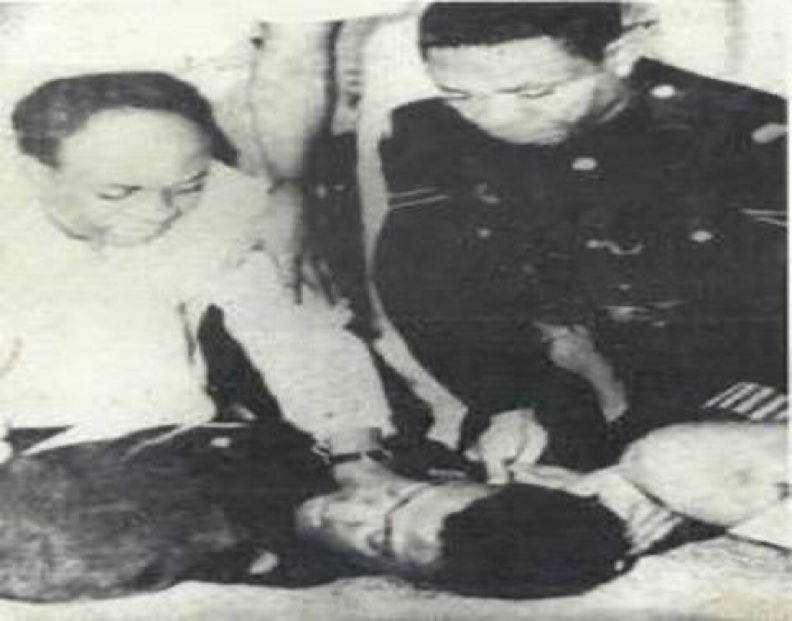
After firing the shots that killed Salifu Dagarti, Ametewee attempted to fire a fifth round, but the gun jammed. In a desperate bid to escape, President Nkrumah sprinted towards the Flagstaff House kitchen, shouting for help. However, the armed police and senior officials present at the scene failed to intervene, with one official reportedly remarking, “They’ve bungled it again.”



23-year-old Ametewee chased after the President, catching up with him in the kitchen, where he tried to bludgeon him with his rifle butt. Miraculously, the rifle slipped from Ametewee's grasp. The President and Ametewee engaged in a fierce struggle. Ametewee bit the President’s cheek, but Nkrumah retaliated with a kick to the groin, momentarily knocking Ametewee unconscious. Only then did the other police officers intervene, overpowering Ametewee and taking him into custody.

After the assassination attempt, the Flagstaff House was cordoned off with troops. The incident was announced on Radio Ghana at 4 pm without further details. For about 12 hours, there was no public comment again about the incident apart from Russian Ambassador to Ghana, Rodionov, telling his diplomatic colleagues that President Nkrumah had defeated his assailant.

Supt. Salifu Dagarti, who saved the President, was posthumously recognized as a national hero and given a state burial with full military honours. The government also pledged to care for his dependents. 

The Police were barred from presidential guard duties, and Russian-trained Ghanaian Army officers took over. The President was given a Brigadier's direct command and became reclusive, staying at Osu Castle for weeks.
Few days after the Ametewee shooting incident, the first Ghanaian Police Commissioner Erasmus Ransford Tawiah Madjitey (E.R.T. Madjitey) and some top Police Officers including Samuel Amaning were dismissed, and the Army took over Police armouries. E.R.T. Madjitey’s deputy, John Willie Kofi Harlley, became acting Police Commissioner.
- Notably, John Harlley later played a role in President Nkrumah's overthrow on February 24, 1966, while Nkrumah was away on a national assignment.


Few days after the Ametewee shooting incident, the first Ghanaian Police Commissioner Erasmus Ransford Tawiah Madjitey (E.R.T. Madjitey) and some top Police Officers including Samuel Amaning were dismissed, and the Army took over Police armouries. E.R.T. Madjitey’s deputy, John Willie Kofi Harlley, became acting Police Commissioner.
- Notably, John Harlley later played a role in President Nkrumah's overthrow on February 24, 1966, while Nkrumah was away on a national assignment.



Six days after Police Constable Seth Ametewee’s failed assassination attempt on President Kwame Nkrumah at Flagstaff House, Joseph Boakye Danquah (J.B. Danquah) was arrested on January 8, 1964.
J.B. Danquah, a key figure in Ghana’s independence movement, was reportedly linked to the incident and allegedly found with a handwritten speech intended for broadcast if Nkrumah had been successfully assassinated.
J.B. Danquah, a key figure in Ghana’s independence movement, was reportedly linked to the incident and allegedly found with a handwritten speech intended for broadcast if Nkrumah had been successfully assassinated.

The alleged speech’s discovery fueled suspicions of. J.B. Danquah’s involvement and was subsequently detained under the Preventive Detention Act (PDA) and was held at the Nsawam Medium Prison, where he suffered a heart attack and passed away in his condemned cell on February 4, 1965, at the age of 69.

Constable Seth Ametewee was arraigned before the Criminal Session of the High Court in Accra, charged with the murder of Superintendent Salifu Dagarti and the attempted murder of President Kwame Nkrumah.
Ametewee admitted to firing shots at President Nkrumah but disputed that his bullets killed Salifu, despite a pathologist’s report confirming Salifu’s death was caused by bullet wounds.
Ametewee admitted to firing shots at President Nkrumah but disputed that his bullets killed Salifu, despite a pathologist’s report confirming Salifu’s death was caused by bullet wounds.

Seth Nicholas Ametewee also claimed that Samuel Amaning, one of the top police officers who was dismissed and in detention after the failed assassination attempt on Nkrumah, had persuaded him to try to kill President Nkrumah, allegedly promising him £2,000 and a trip to the United States if he carried out the killing.



On April 7, 1964, Siriboe J. (as he then was) presided over the High Court and found 23-year-old Ametewee guilty of both charges, sentencing him to death. Ametewee appealed the conviction to the Supreme Court on November 6, 1964, arguing that he did not intend to kill Salifu. The appeal case became known as AMETEWEE vs. THE STATE [1964] GLR 551 and focused on whether Ametewee was liable for Salifu’s death, given that Salifu was not his intended target.
The Supreme Court eventually overturned the death sentence of Ametewee after ruling that his intention was not to kill Salifu, referencing the principle that “If a person acts with intent to kill and their act affects a different person, they shall be liable and punished as if their intent was directed against that different person.”

The Supreme Court eventually overturned the death sentence of Ametewee after ruling that his intention was not to kill Salifu, referencing the principle that “If a person acts with intent to kill and their act affects a different person, they shall be liable and punished as if their intent was directed against that different person.”


A 2016 post by the Ghana Police Service honoring the heroism of Superintendent Salifu Dagarti 🇬🇭✨
- Superintendent Salifu Dagarti was a veteran, British-trained Ghanaian Police Officer.
- Superintendent Salifu Dagarti was a veteran, British-trained Ghanaian Police Officer.

In Osagyefo Dr. Kwame Nkrumah’s 1968 book entitled, “Dark Days in Ghana”, he put the number of unsuccessful assassination attacks on him at six (6) and he blamed it on the Police and others.
He stated, “Members of the Police and the Special Branch have been involved in each of the six attacks made on my life, and have frequently ignored, and sometimes aided, the activities of people they knew were plotting to overthrow the government.”

He stated, “Members of the Police and the Special Branch have been involved in each of the six attacks made on my life, and have frequently ignored, and sometimes aided, the activities of people they knew were plotting to overthrow the government.”


End of Thread🧵… Want more of this? Follow @askghmedia and turn on notifications for more informative and entertaining content!🥂
- Don’t forget to like, repost, and leave a comment behind! 😁
- Don’t forget to like, repost, and leave a comment behind! 😁
• • •
Missing some Tweet in this thread? You can try to
force a refresh




